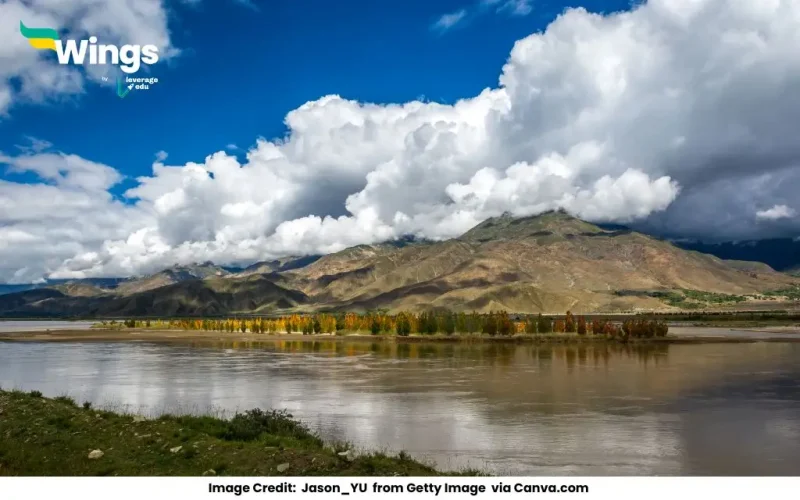Answer: The River Brahmaputra, one of the most significant rivers in Asia, is known by different names in different regions. The three other names for the Brahmaputra are:
1. Yarlung Tsangpo – This is the name of the Brahmaputra in Tibet.
2. Siang or Dihang – In Arunachal Pradesh, India, the river is called Siang or Dihang before entering Assam.
3. Jamuna – In Bangladesh, the Brahmaputra is known as Jamuna, where it merges with the Ganges.
The Brahmaputra originates from the Angsi Glacier in Tibet and flows through China, India, and Bangladesh before emptying into the Bay of Bengal. It spans about 3,848 km and is one of the longest rivers in the world. The river plays a crucial role in agriculture, transportation, and hydroelectric power generation in the regions it flows through.
Characteristics of the River Brahmaputra
Source: Angsi Glacier, Tibet
Length: Approximately 3,848 km
Countries Covered: China (Tibet), India, Bangladesh
Tributaries: Dibang, Lohit, Teesta, and Manas Rivers
Interesting Facts About the Brahmaputra
- It is one of the very few rivers in the world that is male in gender.
- The Brahmaputra is prone to floods during monsoon seasons, especially in Assam and Bangladesh.
- It forms the world’s largest riverine island, Majuli, in Assam.
- The river has the potential for massive hydroelectric projects, making it vital for power generation in India and Bangladesh.
The Brahmaputra River is not just a water body; it is a lifeline for millions of people across Tibet, India, and Bangladesh. Known by different names such as Yarlung Tsangpo, Siang, and Jamuna, the river holds immense cultural, economic, and geographical significance. Its vast course and rich biodiversity make it one of the most important rivers in South Asia.
Common Doubts in Social Science
 45,000+ students trusted us with their dreams. Take the first step today!
45,000+ students trusted us with their dreams. Take the first step today!


 One app for all your study abroad needs
One app for all your study abroad needs










